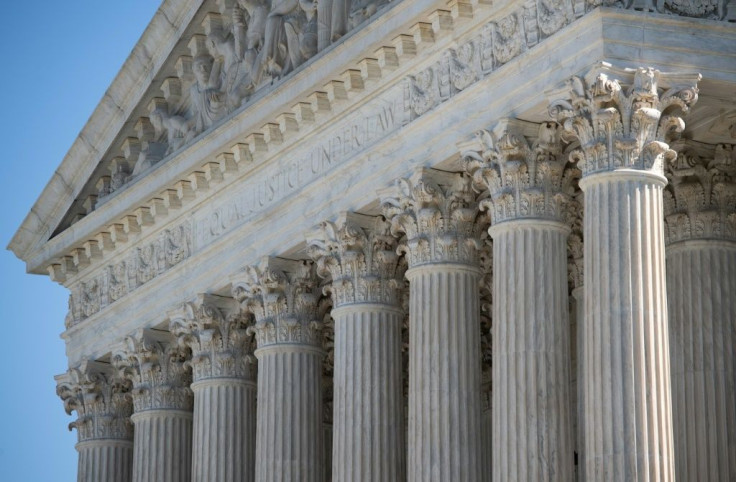Why Haven't Trump's Taxes Been Released? Lawyers Argue To SCOTUS That Returns Shouldn't Go Public

KEY POINTS
- Manhattan District Attorney Cyrus Vance Jr. is investigating hush money paid to two women who said they had sexual affairs with Trump
- Two House committees have subpoenaed Trump's tax returns to assess IRS audits and determine whether tax laws need to be reformed
- Lower courts have directed Trump's attorneys to release the documents
Attorneys for President Trump on Tuesday tried to convince the Supreme Court to overturn lower court orders directing accountants to turn over the president’s tax returns to New York prosecutors and House committees in three cases that could define the limits of presidential and congressional power.
Trump’s attorneys argued upholding the subpoenaes would “weaponize” local district attorneys and Congress against the presidency itself.
The cases involve an investigation by Manhattan District Attorney Cyrus Vance Jr. into hush money paid to two women who said they had affairs with Trump and efforts by two House committees that argue they want the information to determine whether the Internal Revenue Service is auditing Trump appropriately and whether tax laws should be reformed.
“No county district attorney in our nation’s history has issued criminal process against a sitting president of the United States. … The Constitution doesn’t allow it,” Trump attorney Jay Sekulow said. He said Vance used the same language in his subpoena as that used by the House committees seeking the records.
Trump’s private argued the president has broad immunity from prosecution despite 1990s-era rulings that allowed the investigation of Bill Clinton and those in the 1970s stemming from Watergate.
Trump also is being represented by the Justice Department, which rejected the broad argument against the New York subpoena but argued against its validity anyway.
Solicitor General Noel Francisco insisted Vance needs “to show he really needs the documents” and “hasn’t tried to meet that standard.”
Both Chief Justice John Roberts and Justice Neil Gorsuch asked why the Clinton rulings shouldn’t apply.
“I would have thought the discovery in a case like Clinton v. Jones would be similarly distracting,” Roberts said.
Justice Elena Kagan said the president’s position would make it impossible for Congress to conduct oversight.
Sekulow said the difference was that the Clinton case was civil whereas the current case is criminal.
Regarding the House cases, Trump’s attorneys argued Congress was being unreasonable in asking for tax returns spanning 10 years. They said Congress’ power to investigate a president is limited.
“The subpoenas here are unprecedented in every sense,” attorney Patrick Strawbridge said.
Roberts rejected an argument by Trump attorney Douglas Letter that the subpoena was overly broad.
Deputy Solicitor General Jeffrey B. Wall argued the committees’ justification for wanting the tax documents was “paper-thin.”
© Copyright IBTimes 2025. All rights reserved.






















